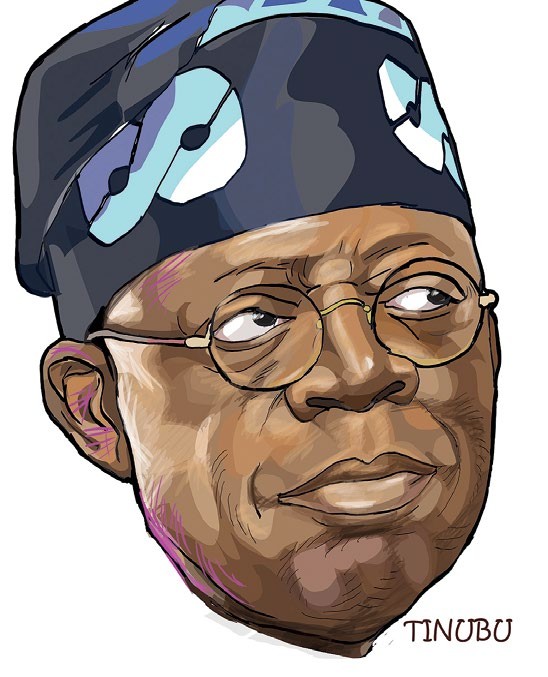Nigeria’s democratic governance is principally built on the foundation of the rule of law, where adherence to court orders is essential for a functional democratic society. However, the country has witnessed an alarming streak of lawlessness, as successive governments have persistently flouted court orders, jeopardising the sanctity of the judicial system and the very essence of democracy.
There are numerous instances where the executive arm of government (State and Federal) have flagrantly ignored orders made by competent courts but of all of these, there are two prominent cases that exemplify this dangerous trend – the case of Nnamdi Kanu and the travails of Godwin Emefiele, the suspended Governor of the Central Bank of Nigeria (CBN).
Under the Muhammadu Buhari Administration, Nnamdi Kanu, the pro-Biafra separatist leader and the Director of Radio Biafra, faced a series of legal battles. In 2015, he was arrested by Nigerian security forces on charges of treasonable felony and operating an illegal broadcasting station. Despite court rulings in his favour, the government continuously disregarded these judgments, leading to his prolonged detention and creating a climate of lawlessness.

One significant incident that garnered international attention was Kanu’s re-arrest in Kenya in 2021 after fleeing the country. The Nigerian Government accused him of jumping bail and engaging in activities that threatened national security. However, Kanu argued that his re-arrest violated the terms of his bail and was politically motivated. This blatant disregard for court orders cast a shadow over the Nigerian judiciary and raised concerns about the erosion of the rule of law.
Despite various court orders granting Kanu bail and allowing him to travel abroad for medical treatment, the government repeatedly violated these orders. The persistent flouting of court judgments in Kanu’s case sparked protests within and outside Nigeria, particularly amongst the Igbo community, with human rights organisations and legal experts condemning the government’s actions.
Regrettably, the flouting of court orders continues under the current administration of President Bola Tinubu, even if it is still early days. Despite the change in leadership, the case of Nnamdi Kanu has not been properly resolved, reflecting a dangerous disregard for constitutional authority and the rule of law. This recurring theme of disrespect for court orders presents a significant challenge to Nigeria’s democracy and threatens the trust of its citizens in the judicial system.
Furthermore, the case of Kanu is just one example of a broader trend of government officials and security agencies disregarding court orders. Instances of disobedience to court orders have become disturbingly common in Nigeria, with prominent persons, security agencies like the DSS and the military all exhibiting a culture of lawlessness. This consistent disobedience erodes public trust in the judiciary and sets a dangerous precedent for the entire society.
The consequences of such actions are far-reaching. The judiciary’s authority is weakened, leading to a loss of confidence in the rule of law. Citizens’ rights are compromised as court judgments, meant to protect their rights and freedoms, are ignored by those in power. This situation not only undermines the principles of democracy but also fosters a culture of impunity and irresponsibility among government officials and security agencies.
Godwin Emefiele, a prominent figure in the financial sector, served as the Governor of the Central Bank of Nigeria (CBN) from June 2014 to June 2023 until his suspension by President Tinubu and subsequent arrest and detention by the Department of State Services (DSS) over allegations of economic sabotage and terrorism financing, indictments the agency has so far been unable to formally charge Emefiele with before a competent court.
Emefiele’s tenure as the head of the country’s apex bank was marked by numerous challenges, including economic reforms and efforts to stabilise the nation’s currency. However, his time in office was not without controversy with his sensational attempt to run for president and the currency redesign policy standing out as one of the most controversial decisions. His continued incarceration by the DSS has been fraught with legal challenges that have raised concerns about the rule of law in Nigeria.
During Emefiele’s tenure as CBN Governor, he implemented various policies aimed at addressing economic challenges and stabilising the national currency. Some of these policies, such as the redesigning of the Naira notes to curb counterfeiting, vote buying and illegal activities, were met with resistance and criticism from some quarters.
Since June, following his suspension, Emefiele has lost his right to freedom and liberty. His detention by the DSS raised concerns about the misuse of security agencies for political purposes and the disregard for due process. Many believe that the charges brought against him were politically motivated and aimed at punishing him for some of his actions as CBN governor. Till date, despite the very serious alleged infractions claimed by the DSS against Emefiele, it has only managed to charge him for allegedly possessing a made shotgun and cartridges without a license.
Emefiele’s detention by the DSS, despite the order of a High Court blocking his arrest, was protracted, lasting for more than six weeks without any formal charges brought against him. This prolonged detention without trial raised alarm bells about the violation of his fundamental human rights, including the right to a fair trial and due process.
Subsequent court orders for his release have been ignored by the DSS, including the latest order by Justice Nicholas Oweibo of the Federal High Court in Ikoyi, Lagos, leading to an embarrassing standoff between armed officers of the Nigerian Correctional Service and armed DSS officers.
The incident further highlighted the DSS’s blatant disregard for court orders and the rule of law. It sent a chilling message about the impunity with which security agencies were willing to operate and the vulnerability of the judiciary in the face of such lawlessness.
The continued disregard of court orders poses a significant threat to Nigeria’s democracy. In fact, it undermines the judiciary and democracy and raises concerns about the abuse of power by security agencies. There must be strict adherence to due process, and individuals facing legal charges should be accorded their fundamental human rights, including the right to a fair trial and the presumption of innocence until proven guilty. Moreover, there should be accountability for those who violate court orders and undermine the rule of law.
Independent oversight mechanisms should be put in place to monitor the conduct of security agencies and ensure that they operate within the confines of the law.
The case of Emefiele serves as a critical test for Nigeria’s commitment to democracy and the rule of law. It is an opportunity for the nation to reaffirm its dedication to upholding constitutional authority, protecting citizens’ rights, and ensuring that no one is above the law, regardless of their position or influence. Only through such steadfast commitment can Nigeria build a just and democratic society that respects the rule of law and safeguards the rights and freedoms of all its citizens.
In a democratic society, the rule of law forms the bedrock of governance, ensuring that all individuals, including government officials, are subject to and bound by the law. Central to upholding the rule of law is the obligation to abide by court judgments. When court orders are ignored or flouted by the State, it undermines the very foundation of democracy, eroding public trust in the judiciary and jeopardising the fundamental rights and freedoms of citizens.
The persistent disregard for court judgments in Nigeria poses a significant threat to the country’s democratic governance. Upholding the rule of law is not optional but a fundamental obligation for every government and institution within Nigeria. To preserve democracy and ensure the stability of the nation, it is imperative for the government, security agencies, and all stakeholders to abide by court orders.
Addressing this issue requires a change in the narrative and a commitment from the government to respect the rule of law, human rights, and constitutional authority. The judiciary must remain strong and impartial, and judges must be courageous in upholding the rule of law without fear of political interference. Government officials, as leaders, must lead by example and show respect for the rule of law to set a positive tone for the rest of society.
Only through such actions can Nigeria regain faith in its judiciary and foster a stable and just democratic system. The rule of law is the bedrock of democracy, and upholding it is crucial for the country’s progress, ensuring equal rights, accountability, inclusiveness, and limiting the arbitrary exercise of power. By prioritising the rule of law, Nigeria can pave the way for a better future where citizens’ rights are protected, institutions function effectively, and democracy flourishes.






